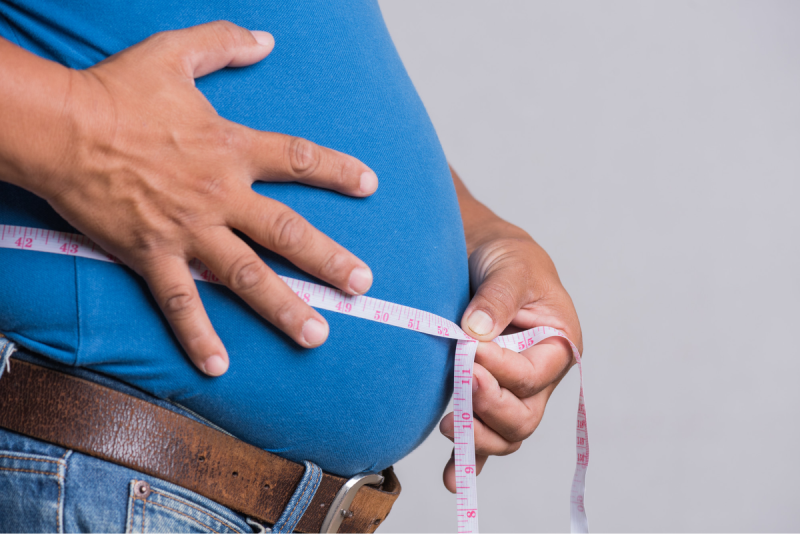The link between stress and weight gain is complex and can vary from person to person based on several individual factors. However, there are several mechanisms through which stress can contribute to weight gain:
Emotional eating: Many people turn to food to cope with stress, which can lead to overconsumption of calories. Sugary, fatty, and empty-calorie foods are often chosen during these times, which can promote weight gain.
Changes in eating habits: Stress can disrupt regular eating habits. Some people may skip meals, while others may eat more frequently and in larger quantities due to stress.
Stress hormones: When you’re stressed, your body releases stress hormones, such as cortisol. Elevated levels of cortisol over an extended period can promote fat storage, especially around the abdominal region.
Disrupted sleep: Stress can lead to sleep problems, such as insomnia. Lack of sleep can disrupt appetite-regulating hormones, increasing hunger and the desire to consume calorie-rich foods.
Reduced physical activity: During times of intense stress, people often have less energy or motivation to engage in physical exercise, which can contribute to weight gain.
Visceral fat storage: Chronic stress can promote the storage of visceral fat, which is fat stored around internal organs. This type of fat is more detrimental to health than subcutaneous fat.
It’s important to note that not everyone responds to stress in the same way, and some individuals may lose weight rather than gain it when stressed due to a decreased appetite. Additionally, genetics, metabolism, and other individual factors play a role in how stress affects body weight.
To maintain a healthy body weight, it’s essential to develop effective stress management strategies, such as meditation, regular physical activity, therapy, and striving to maintain balanced eating habits even during stressful times. Consult a healthcare professional or nutritionist if you have specific concerns about your weight and stress.




